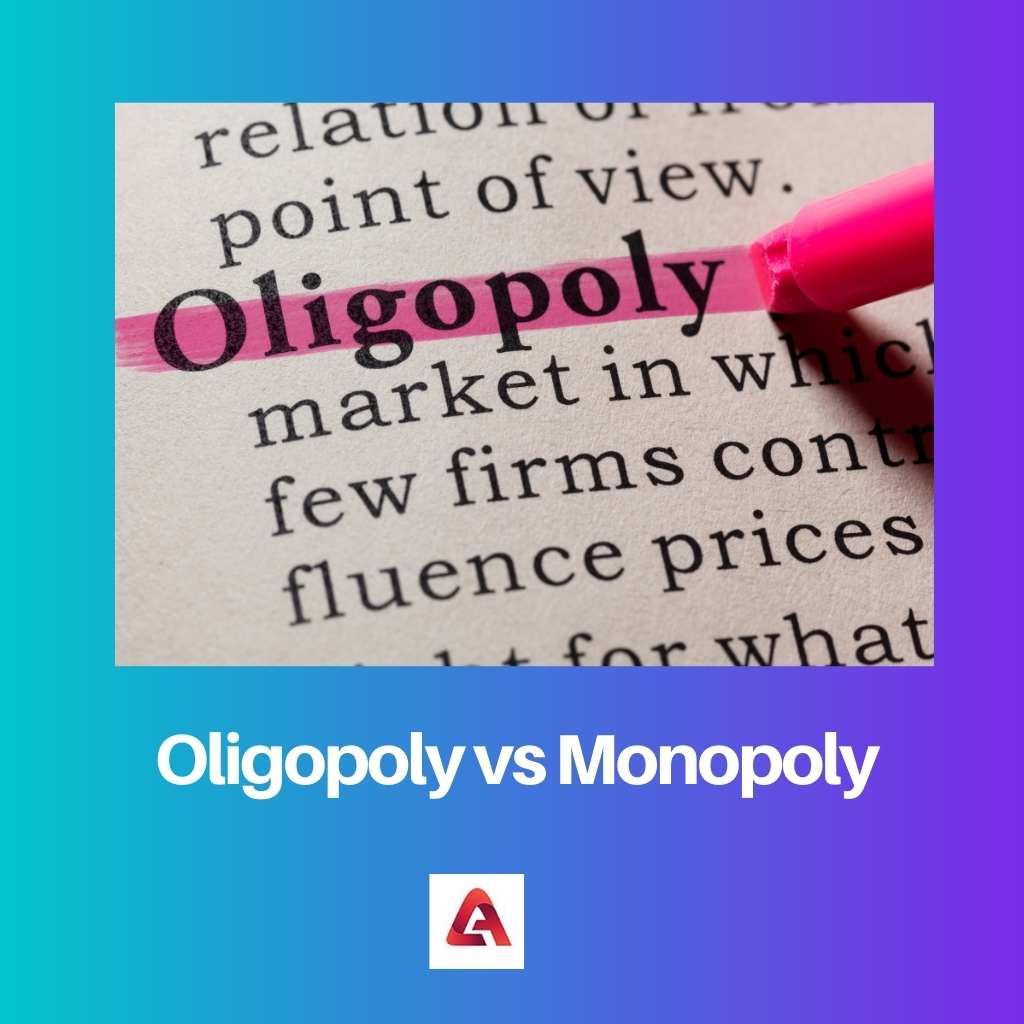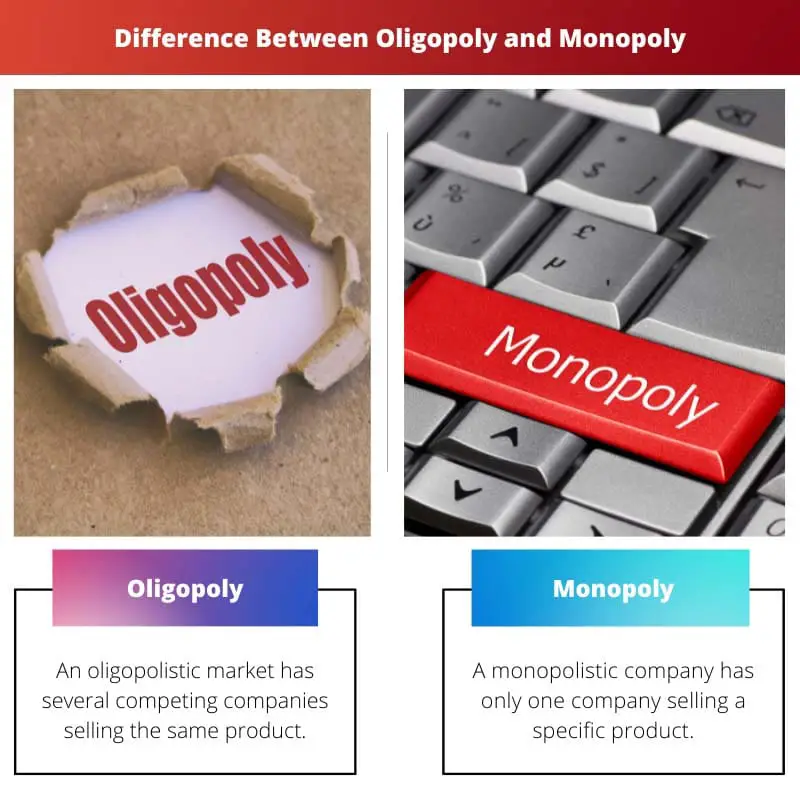An economic market can be classified into many forms, like an oligopoly or a monopoly. An oligopoly is a form of competition between a few sellers, whereas a monopoly refers to one seller dominating the market.
Oligopolies and monopolies, although similar, have dramatic differences between them in terms of competition and market behavior.
Key Takeaways
- Oligopolies have limited competition and can lead to collaboration between firms, whereas monopolies face no competition, enabling them to dictate prices and market conditions.
- Oligopolies can result in less product diversity and higher prices than competitive markets, while monopolies can create significant barriers to entry and stifle innovation.
- An oligopoly is a market structure where a few large firms dominate the industry, while a monopoly occurs when a single company has exclusive control over a product or service.
Oligopoly vs Monopoly
A monopoly exists when only one supplier exists in the market, while an oligopoly exists when a few firms dominate the market. In a monopoly, the single supplier in a limited competition controls the price and supply of the product or service, leading to higher prices and lower output.

An oligopoly is a type of market organization in which a market or industry is dominated by a small number of sellers. Oligopoly is an economic term that refers to the few controlling many.
This can be a national market or even a regional market. The most commonly cited oligopoly examples include the airline, automobile, banking, and wireless industries.
A monopoly is when a company has control over a certain market. A monopoly is when a single person or entity has control of all the business in an industry.
This can lead to consumers having no choice to go to another company as the company or product in concern is the only one widely distributed in the market.
Comparison Table
| Parameters of Comparison | Oligopoly | Monopoly |
|---|---|---|
| No of Competitors | An oligopolistic market has several competing companies selling the same product. | A monopolistic company has only one company selling a specific product. |
| Competition | Here is strict competition between the companies selling the same product. | As the sole producer in the market, monopolistic companies do not face competition. |
| Prices of goods | The prices of goods in an oligopoly are almost always lower or fairer in comparison to monopolies. | Monopoly causes the rise of prices in goods due to lack of competition. |
| Influence on market | Each competing company influences the market. | The company has a sole effect on price in the market also creates a brand name. |
| Example | Oil tanker companies, Health insurance, beauty products, cars, and so on. | Tech companies like Microsoft, Google, and so on. |
What is Oligopoly?
An oligopoly is a type of market that is dominated by a few firms or companies. Oligopoly is a type of market in which a small number of sellers produce a large proportion of the market output.
Oligopolies are found in markets with low entry barriers and a high degree of competitive rivalry. The result is that the profit margin of the firms is likely to be under pressure for the following reasons.
First, the companies are likely to have a high level of fixed costs, so the impact of any given level of output is relatively high, and second, the companies are likely to have a high level of R and D expenditure as products are differentiated, so again the impact of extra output is relatively high.
They may have a lot of power in their joint ventures and have similar pricing to undercut each other. Oligopoly can be classified as finite or infinite.
A finite oligopoly is one where the entry of new firms is difficult, either due to regulation, high start-up costs, or because the industry is already dominated by a small number of firms.
An infinite oligopoly is one in which new firms can enter the industry easily.

What is Monopoly?
A monopoly is an enterprise that enjoys sole dominance in a given industry. A government cannot and normally will not allow a monopoly to exist, as it is against the best interest of the consumer.
A monopoly can be defined as the power to control a market and influence the supply and prices for goods within that market.
In essence, is a firm that is the only producer of a product or the largest and most popular producer, and thus it can control prices.
This is not to be confused with a monopsony which is a market in which there is a single buyer of a product.
It is common in situations where a government has granted exclusive rights to sell a product such as alcohol, tobacco, or a service like mail delivery.
The government distributes these rights to companies or individuals, giving them complete control of the market.
Monopolies are bad for the economy because they do not allow competition, which is necessary to keep healthy competition in the market.
It can cause rises in prices, low investment in quality, or even lower wages to employees. Therefore, there is added pressure to be the best.
Main Differences Between Oligopoly and Monopoly
- An Oligopoly market has a limited number of choices and several sellers, while a monopoly is a market that has only one seller.
- In comparison to oligopolies, monopolies, as seen in markets that are dominated by a single seller, are easier for governments to oversee.
- Oligopolies are more common and have more of an impact on consumers than monopolies.
- An oligopoly could be broken up since a few small firms may not be able to control such a large market. A monopoly is not broken up because the market is already owned by a single large firm.
- One good example of an oligopoly is health insurance providers, and for monopoly, one can consider Microsoft industries in terms of operating systems.



